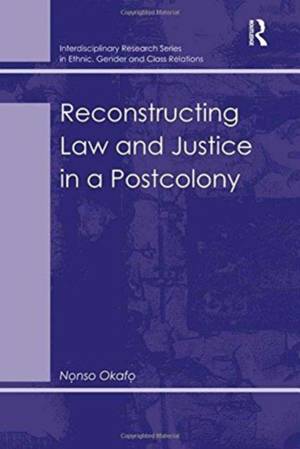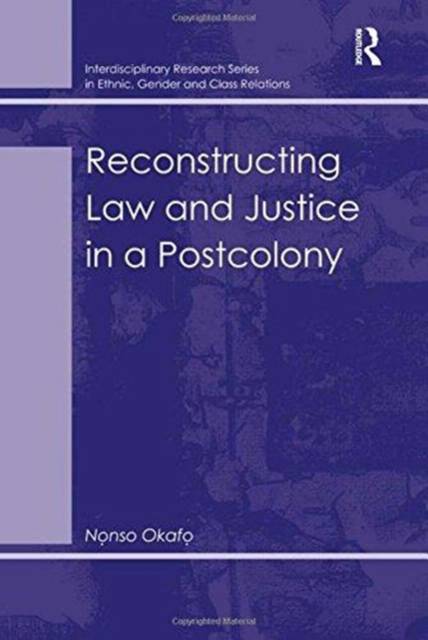
- Afhalen na 1 uur in een winkel met voorraad
- Gratis thuislevering in België vanaf € 30
- Ruim aanbod met 7 miljoen producten
- Afhalen na 1 uur in een winkel met voorraad
- Gratis thuislevering in België vanaf € 30
- Ruim aanbod met 7 miljoen producten
Zoeken
Omschrijving
Drawing on data from a cross-section of postcolonial nations across the world and on a detailed case-study of Nigeria, this book examines the experience of recreating law and justice in postcolonial societies. The author's definition of postcolonial societies includes countries that have emerged from external colonial rule, such as Nigeria and India as well as societies that have overcome internal dominations, such as Afghanistan and Iraq. Suggesting that restructuring a system of law and justice must involve a consideration of the traditions, customs and native laws of a society as well as the official, often foreign rules, this volume examines how ethnically complex nations resolve disputes, whether criminal or civil, through a combination of formal and informal social control systems. This book is unique in its concern with how the average citizens of a postcolonial society can play more active parts in their nation's law and justice, and how modern and increasingly urban societies can learn from indigenous peoples and institutions, which are more informal in their approaches to problem-solving. The concluding chapter looks at the possibility of an increased role for civil as opposed to criminal response in the social control system of a postcolonial society.
Specificaties
Betrokkenen
- Auteur(s):
- Uitgeverij:
Inhoud
- Aantal bladzijden:
- 268
- Taal:
- Engels
- Reeks:
Eigenschappen
- Productcode (EAN):
- 9781138262591
- Verschijningsdatum:
- 28/10/2016
- Uitvoering:
- Paperback
- Formaat:
- Trade paperback (VS)
- Afmetingen:
- 156 mm x 234 mm
- Gewicht:
- 381 g

Alleen bij Standaard Boekhandel
+ 137 punten op je klantenkaart van Standaard Boekhandel
Beoordelingen
We publiceren alleen reviews die voldoen aan de voorwaarden voor reviews. Bekijk onze voorwaarden voor reviews.











